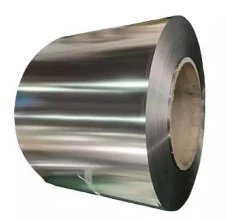
Nov . 19, 2024 14:09 Back to list
Quotation for Printed Tinplate Materials and Pricing Details
Understanding Printed Tinplate Quotation Key Factors and Considerations
In the world of packaging, printed tinplate has emerged as a popular choice for manufacturers looking to create visually appealing and durable products. As the demand for customized packaging solutions continues to grow, companies must understand how to navigate the intricacies of printed tinplate quotations. This article explores the essential components that contribute to an accurate and comprehensive quotation for printed tinplate, allowing businesses to make informed decisions.
1. Material Specifications
The first step in obtaining a reliable printed tinplate quotation is understanding the material specifications. Printed tinplate is typically made of steel sheets coated with tin, which provides excellent corrosion resistance and a bright finish. When requesting a quotation, it is essential to specify the thickness of the tinplate, which can vary depending on the intended use. Common thicknesses range from 0.15 mm to 0.5 mm. Additionally, businesses should consider the type of coating and the overall quality of the tinplate, as these factors can significantly influence the final cost.
2. Printing Techniques and Artwork
The printing process plays a crucial role in the overall quality and appearance of the printed tinplate. Various printing techniques, such as lithography, screen printing, and digital printing, can be employed based on the desired outcome. Each method has its advantages and limitations, affecting both the cost and lead time of the project.
When requesting a quotation, it is vital to provide detailed artwork that includes dimensions, colors, and any special finishes (e.g., matte or glossy coatings). The complexity of the design can also impact the quotation; intricate designs may require additional setup time and resources, leading to higher costs.
3. Order Quantity and Production Lead Time
printed tinplate quotation

The volume of printed tinplate required is another critical factor in obtaining an accurate quotation. Manufacturers often provide tiered pricing based on order quantities, with larger orders typically resulting in lower per-unit costs. However, companies must assess their actual needs to avoid overcommitting to large quantities that may lead to excess inventory.
The production lead time is equally important when requesting a quotation. Factors such as material availability, printing schedules, and potential customizations can influence the time it takes to fulfill an order. Businesses should communicate their deadlines clearly to ensure that the quotation reflects the necessary timelines.
4. Additional Costs and Considerations
Beyond the basic costs associated with materials and printing, several additional factors can influence the overall quotation for printed tinplate. Shipping and handling fees, customs duties (for international orders), and any potential storage costs should be considered when evaluating the total expense. Businesses should also inquire about payment terms and any warranties or guarantees offered by the supplier.
Moreover, sustainability is becoming an essential consideration for many companies. Inquire about the environmental impact of the printing processes and whether the tinplate is sourced from environmentally responsible suppliers. This can lead to better branding and consumer perception.
Conclusion
Obtaining a printed tinplate quotation involves more than simply requesting a price. It requires a comprehensive understanding of various factors, including material specifications, printing techniques, order quantities, and additional costs. By carefully considering these elements, businesses can receive accurate quotes that meet their unique packaging needs while ensuring quality and cost-effectiveness. As the industry continues to evolve, staying informed about best practices in obtaining quotations will empower companies to excel in the competitive packaging market.
-
Cost-Effective Tram: GPT-4 Turbo AI Savings
NewsAug.03,2025
-
New Energy Vehicles with GPT-4 Turbo AI
NewsAug.02,2025
-
Premium 26 Gauge Galvanized Steel Coil Maker | Quality
NewsJul.31,2025
-
GPT-4 Turbo New Energy Vehicles: AI-Driven Efficiency & Smart Mobility
NewsJul.31,2025
-
Electric Vehicles for Sale: New Cars, Used Cars & NIO ES8 Offers
NewsJul.30,2025
-
BYD New Energy Vehicles: Innovative New Cars for a Greener Future
NewsJul.29,2025